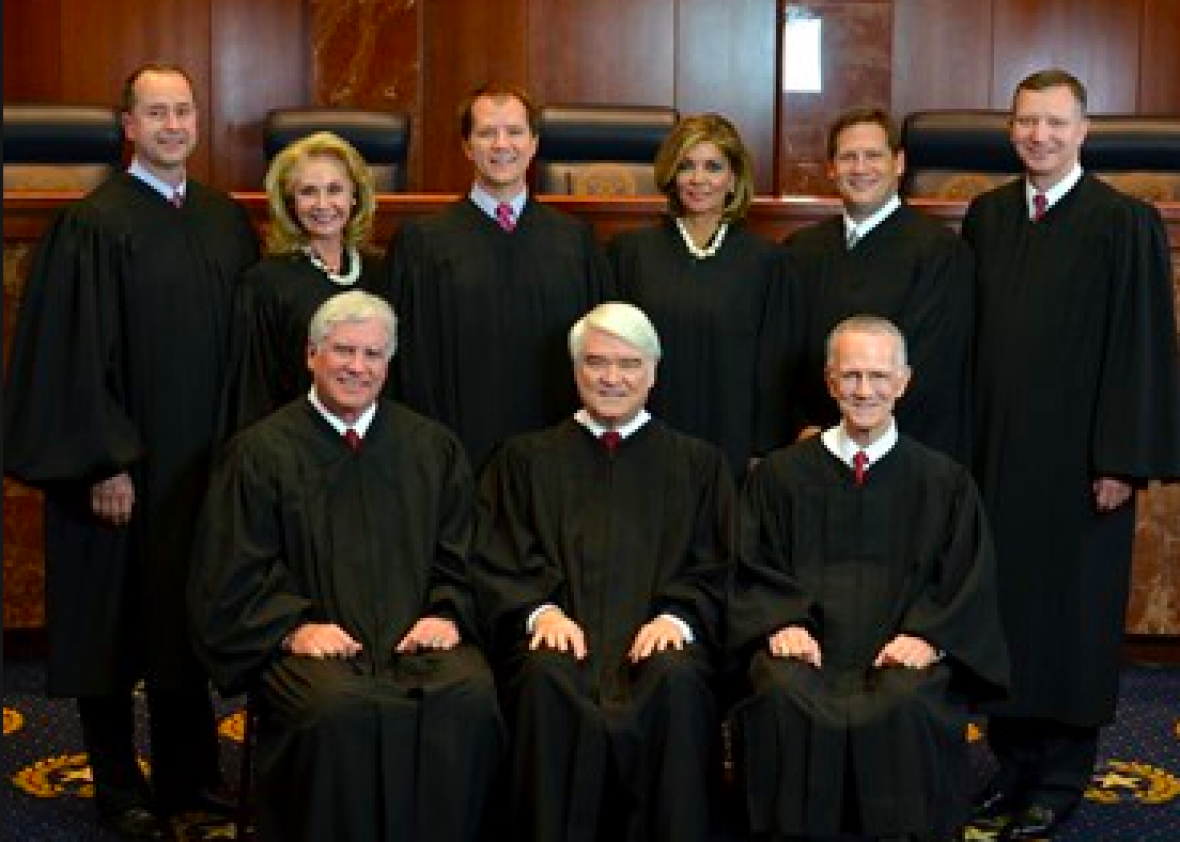In a startling and dubious ruling on Friday, the Texas Supreme Court held that Houston’s LGBT nondiscrimination ordinance must be put to a popular vote—or repealed. The decision effectively revives the vitriolic, acrimonious campaign against the ordinance. And it sends Houston a clear message from the state supreme court: We don’t like your law.
Houston’s equal rights ordinance has had a troubled history from the start. In May 2014, the Houston City Council passed the ordinance to protect gay, bi, and trans people from discrimination in housing, employment, and city contracts. Opponents of the measure quickly gathered signatures to force a referendum on the law. At first, the city secretary found the petition to be valid. But further examination revealed some irregularities. A jury found that many of the signatures were forged, and a judge agreed, throwing out the petition because, when the forgeries were excluded, it had too few signatures to move forward. Following the judge and jury’s findings, the city attorney ruled the petition invalid.
Now, the Texas Supreme Court has reversed the decisions of the judge, jury, and city attorney. It does so under a thin veneer of law—but its decision is more of a policy statement than a legal ruling. The court states that the power of referendum “is the exercise by the people of the power reserved to them.” That’s undoubtedly correct. The court also notes that the city secretary initially certified the petition. That’s true, too. But the court then ignores the fact that a judge and jury found the petition to be fraudulent, holding that by not certifying forged signatures, “the legislative power reserved to the people of Houston is not being honored.”
What? The court’s grand pronouncements cloud the waters, but the facts here are pretty simple. In order to put a city ordinance to referendum, opponents must gather 17,269 signatures. Opponents of Houston’s nondiscrimination law didn’t do that. Instead, they gathered several thousand valid signatures and several thousand forgeries. Minus the forgeries, they failed to reach the minimum threshold of signatures. The Texas Supreme Court doesn’t care. Instead, it decided for itself that the signatures were valid. Then it ordered that enforcement of the ordinance be immediately stopped and compelled the city council to consider repealing it. If the council fails to repeal it, the ordinance must be put to a popular vote in the November 2015 election.
The Texas Supreme Court did not really render a legal judgment in this case. It resuscitated the campaign against an equal rights ordinance that it clearly didn’t like. This court just recently gave itself the power to strike down health and safety regulations it disfavors. Now it has granted itself authority to help along opponents of nondiscrimination laws when they’re too inept to win their own battles.
